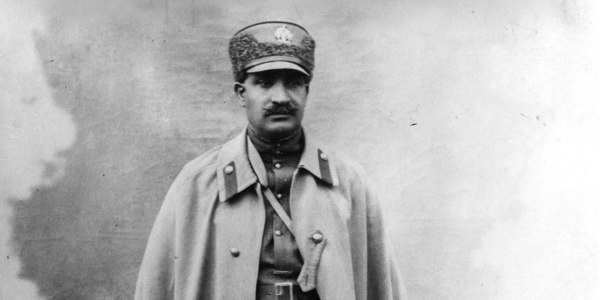French President Jacques Chirac said in an interview with three publications that Iran’s possession of a nuclear bomb would not be “very dangerous” and that if it used the weapon on Israel, Tehran would be immediately “razed.”
Chirac — who made the comments during a Monday interview with The New York Times, The International Herald Tribune and Le Nouvel Observateur, a weekly magazine — called reporters back the next day to try to have his quotes retracted.
The publications said the interview was tape recorded and on the record.
Chirac’s initial remarks would mark a big departure from France’s official policy of working to prevent Iran from obtaining nuclear weapons.
“I should rather have paid attention to what I was saying and understood that perhaps I was on the record,” Chirac said in the second interview on Tuesday, according to transcripts that the three publications posted on their Web sites.
On Monday, Chirac said of Iran and its nuclear program: “I would say that what is dangerous about this situation is not the fact of having a nuclear bomb. Having one or perhaps a second bomb a little later, well, that’s not very dangerous.”
Instead, Chirac said, the danger lies in the chances of proliferation or an arms race in the Middle East should Iran build a nuclear bomb. Possessing the weapon would be useless for Iran — whose leader has called for Israel to be “wiped off the map” — as using it would mean an instant counterattack.
“Where will it drop it, this bomb? On Israel?” Chirac asked. “It would not have gone 200 meters into the atmosphere before Tehran would be razed.”
Chirac recalls reporters for clarification
Chirac’s office took the unusual step of asking reporters to come over in person on Thursday for a clarification. It said the interview had mainly focused on the environment and that France’s position on Iran had not changed.
A French official, who briefed reporters on condition that he not be identified, confirmed that Chirac had later retracted his original comments on Iran, and said the president had been speaking in a “strategic” or hypothetical way about nuclear deterrence involving Iran — not about “diplomacy.”
Slideshow 15 photos
Iran’s perilous path
The official said Chirac had spoken hastily and that his reasoning “was missing a few steps,” prompting the president to call back the reporters. He said Chirac’s idea was to point out how unthinkable it would be that Iran could even consider using a nuclear weapon.
The U.N. Security Council recently imposed limited sanctions — which Chirac supported — to punish Iran for defying a resolution demanding that it suspend uranium enrichment, a process that can produce fissile material to fuel nuclear reactors or, at purer concentrations, the core of nuclear weapons.
The U.S. and its allies accuse Iran of secretly trying to develop nuclear weapons, an allegation Tehran denies, insisting it only wants to produce energy. U.S. administration officials have said diplomacy was the focus of their policy on Iran but have never ruled out attacks on Iran.
Israeli Foreign Ministry spokesman Mark Regev said it would be “an extremely destabilizing factor” for the Middle East and global security if Tehran got the bomb.
“I don’t think anyone in the international community has any doubt that the Iranian nuclear program is benign,” he said.
Russia: France wants to protect Iran
Alexander Pikayev, a Moscow-based defense analyst who is co-chairman of the Committee of Scientists for Global Security, told The Associated Press that Chirac’s “incautious” remarks revealed “the mood of the French ruling elite.”
“French leaders are afraid not so much of Iran’s nuclearization, but that Iran will be attacked. France’s tough position is not aimed against Iran becoming a nuclear power, but against the United States or Israel striking Iran,” he said.
Pikayev added that France had fiercely opposed invading Iraq and now wants to avoid a similar scenario in Iran, having economic interests in that country and having a sizable Iranian and Muslim diaspora, which would not support a strike on Iran.
In the second interview with the same publications, Chirac retracted his comment about Tehran being razed. “I retract it, of course, when I said, ’One is going to raze Tehran,”’ he said.
Chirac also said other countries would stop any bomb launched by Iran from reaching its target.
“It is obvious that this bomb, at the moment it was launched, obviously would be destroyed immediately,” he said. “We have the means — several countries have the means to destroy a bomb.”
Regarding his comments that Israel could be a target of an Iranian weapon and that Israel would retaliate, Chirac said: “I don’t think I spoke about Israel yesterday. Maybe I did so but I don’t think so. I have no recollection of that.”
Royal, Sarkozy weigh in
The two leading candidates to succeed Chirac — Interior Minister and Socialist Segolene Royal — have both said that Iran must not be allowed to develop nuclear weapons.
Chirac is not expected to seek a third term in the two-round presidential election in April and May.
Sarkozy has called the prospect of an Iranian bomb “terrifying.” His spokeswoman, Rachida Dati, on Thursday reacted to Chirac’s comments by saying that Sarkozy has “always been clear” in his opposition to a nuclear-armed Iran.
Royal has said that Tehran should not even have access to civilian nuclear power. That stance has elicited criticism since under the terms of the Nuclear Nonproliferation Treaty, Iran is allowed to have a civilian nuclear program.
Royal’s spokesman, former Culture Minister Jack Lang, said that Chirac had committed an “unforgivable” error.
